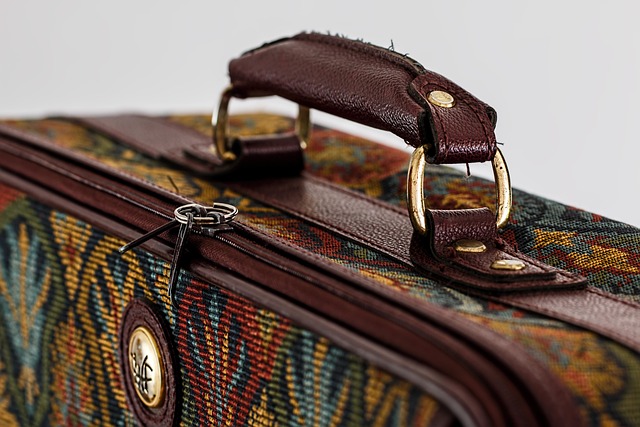The Ultimate Guide to Choosing the Perfect Travel Luggage
Selecting the right luggage for your travels can make or break your trip. Whether you're a frequent flyer or an occasional vacationer, understanding the key factors in choosing travel luggage is essential. This comprehensive guide will walk you through the most important considerations, from durability to smart features, ensuring you make an informed decision for your next adventure.

What are the key factors to consider when selecting travel luggage?
When choosing travel luggage, several factors come into play. First and foremost, consider the size and weight restrictions of your usual mode of transportation. Airlines have specific carry-on and checked baggage limits, so be sure to check these before making a purchase. Additionally, think about the length and type of your typical trips. A weekend getaway requires different luggage than a month-long international excursion.
Durability is another crucial factor. Your luggage should withstand the rigors of travel, from being tossed onto conveyor belts to being stuffed into overhead compartments. Look for reinforced corners, sturdy wheels, and high-quality zippers. The material of your luggage also plays a significant role in its longevity and protection of your belongings.
Lastly, consider the luggage’s organization features. Multiple compartments, compression straps, and built-in dividers can help you pack more efficiently and keep your items organized throughout your journey.
What are the differences between hard-shell and soft-sided luggage?
The debate between hard-shell and soft-sided luggage is ongoing, with each type offering distinct advantages. Hard-shell luggage, typically made from polycarbonate or ABS plastic, provides superior protection for fragile items. It’s water-resistant and less prone to tearing or punctures. Hard-shell suitcases are often lighter than their soft-sided counterparts and offer a sleek, modern appearance.
On the other hand, soft-sided luggage, usually made from fabrics like nylon or polyester, offers more flexibility. These bags can compress to fit into tight spaces and often feature external pockets for easy access to essentials. Soft-sided luggage is generally more expandable, allowing you to pack more items or bring home souvenirs.
The choice between hard-shell and soft-sided luggage ultimately depends on your travel style and preferences. If you prioritize protection for delicate items or travel in rainy climates, a hard-shell suitcase might be ideal. For those who value flexibility and extra packing space, soft-sided luggage could be the better option.
How do mobility features, durability, and material choices impact travel luggage?
Mobility features can significantly enhance your travel experience. Four-wheel spinner luggage offers 360-degree maneuverability, making it easy to navigate through crowded airports or city streets. Two-wheel rollers, while less maneuverable, are often more stable on uneven surfaces and easier to pull behind you.
The durability of your luggage is directly related to the materials used in its construction. High-density nylon and ballistic nylon are known for their strength and resistance to wear and tear. For hard-shell luggage, polycarbonate offers an excellent balance of durability and lightweight properties.
Material choices also affect the luggage’s weight, which is crucial for meeting airline restrictions and ease of handling. Lightweight materials like polycarbonate for hard-shells or ripstop nylon for soft-sides can help you maximize your packing capacity without exceeding weight limits.
What security features protect belongings during trips?
Security features have become increasingly important in modern travel luggage. TSA-approved locks are a must-have, allowing security personnel to inspect your bags without damaging the lock. Some luggage brands offer built-in locks, while others have reinforced zippered compartments designed to accommodate separate locks.
Anti-theft zippers, which are more difficult to tamper with or force open, provide an additional layer of security. Some high-end luggage even incorporates slash-resistant materials in vulnerable areas to prevent cutting and unauthorized access to your belongings.
For tech-savvy travelers, luggage tracking devices are becoming more common. These small, battery-powered devices can be placed inside your suitcase, allowing you to track its location via smartphone apps. This feature is particularly useful in case of lost or delayed baggage.
How has smart luggage technology revolutionized modern travel?
Smart luggage technology has introduced a range of innovative features that cater to the needs of modern travelers. Built-in USB charging ports allow you to keep your devices powered up on the go, eliminating the need to hunt for outlets in crowded airports. Some smart suitcases even come with removable power banks that comply with airline regulations.
Digital scales integrated into luggage handles help you avoid overweight baggage fees by allowing you to weigh your suitcase before reaching the check-in counter. Bluetooth-enabled locks can be controlled via smartphone apps, providing convenient and secure access to your belongings.
Remote control features are another exciting development in smart luggage. Some suitcases can be controlled through smartphone apps, allowing you to track their location or even have them follow you autonomously through the airport.
While smart luggage offers many conveniences, it’s important to note that some airlines have restrictions on batteries in checked baggage. Always check the latest regulations and ensure that any batteries in your smart luggage are removable to comply with airline policies.
Choosing the right travel luggage involves carefully considering your specific needs, travel habits, and preferences. By evaluating factors such as durability, mobility, security features, and innovative technologies, you can select a suitcase that will be your reliable companion on many journeys to come. Remember that the perfect luggage is an investment in smoother, more enjoyable travel experiences.




